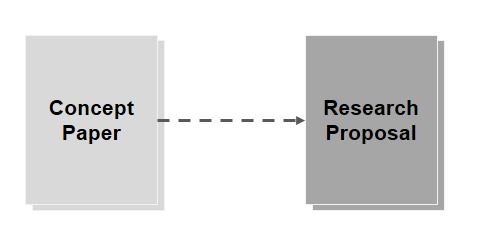
Home » Education » What is the Difference Between Research and Project

What is the Difference Between Research and Project
The main difference between research and project is that research is the systematic investigation and study of materials and sources to establish facts and reach new conclusions, while a project is a specific and finite activity that gives a measurable and observable result under preset requirements.
Both research and projects use a systematic approach. We also sometimes use the term research project to refer to research studies.
Key Areas Covered
1. What is Research – Definition, Features 2. What is a Project – Definition, Features 3. Difference Between Research and Project – Comparison of Key Differences
Research, Project

What is Research
Research is a careful study a researcher conducts using a systematic approach and scientific methods. A research study typically involves several components: abstract, introduction , literature review , research design, and method , results and analysis, conclusion, bibliography. Researchers usually begin a formal research study with a hypothesis; then, they test this hypothesis rigorously. They also explore and analyze the literature already available on their research subject. This allows them to study the research subject from multiple perspectives, acknowledging different problems that need to be solved.

There are different types of research, the main two categories being quantitative research and qualitative research. Depending on their research method and design, we can also categorize research as descriptive research, exploratory research, longitudinal research, cross-sectional research, etc.
Furthermore, research should always be objective or unbiased. Moreover, if the research involves participants, for example, in surveys or interviews, the researcher should always make sure to obtain their written consent first.
What is a Project
A project is a collaborative or individual enterprise that is carefully planned to achieve a particular aim. We can also describe it as a specific and finite activity that gives a measurable and observable result under preset requirements. This result can be tangible or intangible; for example, product, service, competitive advantage, etc. A project generally involves a series of connected tasks planned for execution over a fixed period of time and within certain limitations like quality and cost. The Project Management Body of Knowledge (PMBOK) defines a project as a “temporary endeavor with a beginning and an end, and it must be used to create a unique product, service or result.”

Difference Between Research and Project
Research is a careful study conducted using a systematic approach and scientific methods, whereas a project is a collaborative or individual enterprise that is carefully planned to achieve a particular aim.
Research studies are mainly carried out in academia, while projects can be seen in a variety of contexts, including businesses.
The main aim of the research is to seek or revise facts, theories, or principles, while the main aim of a project is to achieve a tangible or intangible result; for example, product, service, competitive advantage, etc.
The main difference between research and project is that research is the systematic investigation and study of materials and sources to establish facts and reach new conclusions, while the project is a specific and finite activity that gives a measurable and observable result under preset requirements.
1. “ What Is a Project? – Definition, Lifecycle and Key Characteristics .” Your Guide to Project Management Best Practices .
Image Courtesy:
1. “ Research ” by Nick Youngson (CC BY-SA 3.0) via The Blue Diamond Gallery 2. “ Project-group-team-feedback ” (CC0) via Pixabay
About the Author: Hasa
Hasanthi is a seasoned content writer and editor with over 8 years of experience. Armed with a BA degree in English and a knack for digital marketing, she explores her passions for literature, history, culture, and food through her engaging and informative writing.
You May Also Like These
Leave a reply cancel reply.
What (Exactly) Is A Research Proposal?
A simple explainer with examples + free template.
By: Derek Jansen (MBA) | Reviewed By: Dr Eunice Rautenbach | June 2020 (Updated April 2023)
Whether you’re nearing the end of your degree and your dissertation is on the horizon, or you’re planning to apply for a PhD program, chances are you’ll need to craft a convincing research proposal . If you’re on this page, you’re probably unsure exactly what the research proposal is all about. Well, you’ve come to the right place.
Overview: Research Proposal Basics
- What a research proposal is
- What a research proposal needs to cover
- How to structure your research proposal
- Example /sample proposals
- Proposal writing FAQs
- Key takeaways & additional resources
What is a research proposal?
Simply put, a research proposal is a structured, formal document that explains what you plan to research (your research topic), why it’s worth researching (your justification), and how you plan to investigate it (your methodology).
The purpose of the research proposal (its job, so to speak) is to convince your research supervisor, committee or university that your research is suitable (for the requirements of the degree program) and manageable (given the time and resource constraints you will face).
The most important word here is “ convince ” – in other words, your research proposal needs to sell your research idea (to whoever is going to approve it). If it doesn’t convince them (of its suitability and manageability), you’ll need to revise and resubmit . This will cost you valuable time, which will either delay the start of your research or eat into its time allowance (which is bad news).

What goes into a research proposal?
A good dissertation or thesis proposal needs to cover the “ what “, “ why ” and” how ” of the proposed study. Let’s look at each of these attributes in a little more detail:
Your proposal needs to clearly articulate your research topic . This needs to be specific and unambiguous . Your research topic should make it clear exactly what you plan to research and in what context. Here’s an example of a well-articulated research topic:
An investigation into the factors which impact female Generation Y consumer’s likelihood to promote a specific makeup brand to their peers: a British context
As you can see, this topic is extremely clear. From this one line we can see exactly:
- What’s being investigated – factors that make people promote or advocate for a brand of a specific makeup brand
- Who it involves – female Gen-Y consumers
- In what context – the United Kingdom
So, make sure that your research proposal provides a detailed explanation of your research topic . If possible, also briefly outline your research aims and objectives , and perhaps even your research questions (although in some cases you’ll only develop these at a later stage). Needless to say, don’t start writing your proposal until you have a clear topic in mind , or you’ll end up waffling and your research proposal will suffer as a result of this.
Need a helping hand?
As we touched on earlier, it’s not good enough to simply propose a research topic – you need to justify why your topic is original . In other words, what makes it unique ? What gap in the current literature does it fill? If it’s simply a rehash of the existing research, it’s probably not going to get approval – it needs to be fresh.
But, originality alone is not enough. Once you’ve ticked that box, you also need to justify why your proposed topic is important . In other words, what value will it add to the world if you achieve your research aims?
As an example, let’s look at the sample research topic we mentioned earlier (factors impacting brand advocacy). In this case, if the research could uncover relevant factors, these findings would be very useful to marketers in the cosmetics industry, and would, therefore, have commercial value . That is a clear justification for the research.
So, when you’re crafting your research proposal, remember that it’s not enough for a topic to simply be unique. It needs to be useful and value-creating – and you need to convey that value in your proposal. If you’re struggling to find a research topic that makes the cut, watch our video covering how to find a research topic .

It’s all good and well to have a great topic that’s original and valuable, but you’re not going to convince anyone to approve it without discussing the practicalities – in other words:
- How will you actually undertake your research (i.e., your methodology)?
- Is your research methodology appropriate given your research aims?
- Is your approach manageable given your constraints (time, money, etc.)?
While it’s generally not expected that you’ll have a fully fleshed-out methodology at the proposal stage, you’ll likely still need to provide a high-level overview of your research methodology . Here are some important questions you’ll need to address in your research proposal:
- Will you take a qualitative , quantitative or mixed -method approach?
- What sampling strategy will you adopt?
- How will you collect your data (e.g., interviews, surveys, etc)?
- How will you analyse your data (e.g., descriptive and inferential statistics , content analysis, discourse analysis, etc, .)?
- What potential limitations will your methodology carry?
So, be sure to give some thought to the practicalities of your research and have at least a basic methodological plan before you start writing up your proposal. If this all sounds rather intimidating, the video below provides a good introduction to research methodology and the key choices you’ll need to make.
How To Structure A Research Proposal
Now that we’ve covered the key points that need to be addressed in a proposal, you may be wondering, “ But how is a research proposal structured? “.
While the exact structure and format required for a research proposal differs from university to university, there are four “essential ingredients” that commonly make up the structure of a research proposal:
- A rich introduction and background to the proposed research
- An initial literature review covering the existing research
- An overview of the proposed research methodology
- A discussion regarding the practicalities (project plans, timelines, etc.)
In the video below, we unpack each of these four sections, step by step.
Research Proposal Examples/Samples
In the video below, we provide a detailed walkthrough of two successful research proposals (Master’s and PhD-level), as well as our popular free proposal template.
Proposal Writing FAQs
How long should a research proposal be.
This varies tremendously, depending on the university, the field of study (e.g., social sciences vs natural sciences), and the level of the degree (e.g. undergraduate, Masters or PhD) – so it’s always best to check with your university what their specific requirements are before you start planning your proposal.
As a rough guide, a formal research proposal at Masters-level often ranges between 2000-3000 words, while a PhD-level proposal can be far more detailed, ranging from 5000-8000 words. In some cases, a rough outline of the topic is all that’s needed, while in other cases, universities expect a very detailed proposal that essentially forms the first three chapters of the dissertation or thesis.
The takeaway – be sure to check with your institution before you start writing.
How do I choose a topic for my research proposal?
Finding a good research topic is a process that involves multiple steps. We cover the topic ideation process in this video post.
How do I write a literature review for my proposal?
While you typically won’t need a comprehensive literature review at the proposal stage, you still need to demonstrate that you’re familiar with the key literature and are able to synthesise it. We explain the literature review process here.
How do I create a timeline and budget for my proposal?
We explain how to craft a project plan/timeline and budget in Research Proposal Bootcamp .
Which referencing format should I use in my research proposal?
The expectations and requirements regarding formatting and referencing vary from institution to institution. Therefore, you’ll need to check this information with your university.
What common proposal writing mistakes do I need to look out for?
We’ve create a video post about some of the most common mistakes students make when writing a proposal – you can access that here . If you’re short on time, here’s a quick summary:
- The research topic is too broad (or just poorly articulated).
- The research aims, objectives and questions don’t align.
- The research topic is not well justified.
- The study has a weak theoretical foundation.
- The research design is not well articulated well enough.
- Poor writing and sloppy presentation.
- Poor project planning and risk management.
- Not following the university’s specific criteria.
Key Takeaways & Additional Resources
As you write up your research proposal, remember the all-important core purpose: to convince . Your research proposal needs to sell your study in terms of suitability and viability. So, focus on crafting a convincing narrative to ensure a strong proposal.
At the same time, pay close attention to your university’s requirements. While we’ve covered the essentials here, every institution has its own set of expectations and it’s essential that you follow these to maximise your chances of approval.
By the way, we’ve got plenty more resources to help you fast-track your research proposal. Here are some of our most popular resources to get you started:
- Proposal Writing 101 : A Introductory Webinar
- Research Proposal Bootcamp : The Ultimate Online Course
- Template : A basic template to help you craft your proposal
If you’re looking for 1-on-1 support with your research proposal, be sure to check out our private coaching service , where we hold your hand through the proposal development process (and the entire research journey), step by step.

Psst… there’s more!
This post is an extract from our bestselling short course, Research Proposal Bootcamp . If you want to work smart, you don't want to miss this .
You Might Also Like:

51 Comments
I truly enjoyed this video, as it was eye-opening to what I have to do in the preparation of preparing a Research proposal.
I would be interested in getting some coaching.
I real appreciate on your elaboration on how to develop research proposal,the video explains each steps clearly.
Thank you for the video. It really assisted me and my niece. I am a PhD candidate and she is an undergraduate student. It is at times, very difficult to guide a family member but with this video, my job is done.
In view of the above, I welcome more coaching.
Wonderful guidelines, thanks
This is very helpful. Would love to continue even as I prepare for starting my masters next year.
Thanks for the work done, the text was helpful to me
Bundle of thanks to you for the research proposal guide it was really good and useful if it is possible please send me the sample of research proposal
You’re most welcome. We don’t have any research proposals that we can share (the students own the intellectual property), but you might find our research proposal template useful: https://gradcoach.com/research-proposal-template/
Cheruiyot Moses Kipyegon
Thanks alot. It was an eye opener that came timely enough before my imminent proposal defense. Thanks, again
thank you very much your lesson is very interested may God be with you
I am an undergraduate student (First Degree) preparing to write my project,this video and explanation had shed more light to me thanks for your efforts keep it up.
Very useful. I am grateful.
this is a very a good guidance on research proposal, for sure i have learnt something
Wonderful guidelines for writing a research proposal, I am a student of m.phil( education), this guideline is suitable for me. Thanks
You’re welcome 🙂
Thank you, this was so helpful.
A really great and insightful video. It opened my eyes as to how to write a research paper. I would like to receive more guidance for writing my research paper from your esteemed faculty.
Thank you, great insights
Thank you, great insights, thank you so much, feeling edified
Wow thank you, great insights, thanks a lot
Thank you. This is a great insight. I am a student preparing for a PhD program. I am requested to write my Research Proposal as part of what I am required to submit before my unconditional admission. I am grateful having listened to this video which will go a long way in helping me to actually choose a topic of interest and not just any topic as well as to narrow down the topic and be specific about it. I indeed need more of this especially as am trying to choose a topic suitable for a DBA am about embarking on. Thank you once more. The video is indeed helpful.
Have learnt a lot just at the right time. Thank you so much.
thank you very much ,because have learn a lot things concerning research proposal and be blessed u for your time that you providing to help us
Hi. For my MSc medical education research, please evaluate this topic for me: Training Needs Assessment of Faculty in Medical Training Institutions in Kericho and Bomet Counties
I have really learnt a lot based on research proposal and it’s formulation
Thank you. I learn much from the proposal since it is applied
Your effort is much appreciated – you have good articulation.
You have good articulation.
I do applaud your simplified method of explaining the subject matter, which indeed has broaden my understanding of the subject matter. Definitely this would enable me writing a sellable research proposal.
This really helping
Great! I liked your tutoring on how to find a research topic and how to write a research proposal. Precise and concise. Thank you very much. Will certainly share this with my students. Research made simple indeed.
Thank you very much. I an now assist my students effectively.
Thank you very much. I can now assist my students effectively.
I need any research proposal
Thank you for these videos. I will need chapter by chapter assistance in writing my MSc dissertation
Very helpfull
the videos are very good and straight forward
thanks so much for this wonderful presentations, i really enjoyed it to the fullest wish to learn more from you
Thank you very much. I learned a lot from your lecture.
I really enjoy the in-depth knowledge on research proposal you have given. me. You have indeed broaden my understanding and skills. Thank you
interesting session this has equipped me with knowledge as i head for exams in an hour’s time, am sure i get A++
This article was most informative and easy to understand. I now have a good idea of how to write my research proposal.
Thank you very much.
Wow, this literature is very resourceful and interesting to read. I enjoyed it and I intend reading it every now then.
Thank you for the clarity
Thank you. Very helpful.
Thank you very much for this essential piece. I need 1o1 coaching, unfortunately, your service is not available in my country. Anyways, a very important eye-opener. I really enjoyed it. A thumb up to Gradcoach
What is JAM? Please explain.
Thank you so much for these videos. They are extremely helpful! God bless!
very very wonderful…
thank you for the video but i need a written example
Submit a Comment Cancel reply
Your email address will not be published. Required fields are marked *
Save my name, email, and website in this browser for the next time I comment.
- Print Friendly

- Research Process
Writing a Scientific Research Project Proposal
- 5 minute read
- 104.7K views
Table of Contents
The importance of a well-written research proposal cannot be underestimated. Your research really is only as good as your proposal. A poorly written, or poorly conceived research proposal will doom even an otherwise worthy project. On the other hand, a well-written, high-quality proposal will increase your chances for success.
In this article, we’ll outline the basics of writing an effective scientific research proposal, including the differences between research proposals, grants and cover letters. We’ll also touch on common mistakes made when submitting research proposals, as well as a simple example or template that you can follow.
What is a scientific research proposal?
The main purpose of a scientific research proposal is to convince your audience that your project is worthwhile, and that you have the expertise and wherewithal to complete it. The elements of an effective research proposal mirror those of the research process itself, which we’ll outline below. Essentially, the research proposal should include enough information for the reader to determine if your proposed study is worth pursuing.
It is not an uncommon misunderstanding to think that a research proposal and a cover letter are the same things. However, they are different. The main difference between a research proposal vs cover letter content is distinct. Whereas the research proposal summarizes the proposal for future research, the cover letter connects you to the research, and how you are the right person to complete the proposed research.
There is also sometimes confusion around a research proposal vs grant application. Whereas a research proposal is a statement of intent, related to answering a research question, a grant application is a specific request for funding to complete the research proposed. Of course, there are elements of overlap between the two documents; it’s the purpose of the document that defines one or the other.
Scientific Research Proposal Format
Although there is no one way to write a scientific research proposal, there are specific guidelines. A lot depends on which journal you’re submitting your research proposal to, so you may need to follow their scientific research proposal template.
In general, however, there are fairly universal sections to every scientific research proposal. These include:
- Title: Make sure the title of your proposal is descriptive and concise. Make it catch and informative at the same time, avoiding dry phrases like, “An investigation…” Your title should pique the interest of the reader.
- Abstract: This is a brief (300-500 words) summary that includes the research question, your rationale for the study, and any applicable hypothesis. You should also include a brief description of your methodology, including procedures, samples, instruments, etc.
- Introduction: The opening paragraph of your research proposal is, perhaps, the most important. Here you want to introduce the research problem in a creative way, and demonstrate your understanding of the need for the research. You want the reader to think that your proposed research is current, important and relevant.
- Background: Include a brief history of the topic and link it to a contemporary context to show its relevance for today. Identify key researchers and institutions also looking at the problem
- Literature Review: This is the section that may take the longest amount of time to assemble. Here you want to synthesize prior research, and place your proposed research into the larger picture of what’s been studied in the past. You want to show your reader that your work is original, and adds to the current knowledge.
- Research Design and Methodology: This section should be very clearly and logically written and organized. You are letting your reader know that you know what you are going to do, and how. The reader should feel confident that you have the skills and knowledge needed to get the project done.
- Preliminary Implications: Here you’ll be outlining how you anticipate your research will extend current knowledge in your field. You might also want to discuss how your findings will impact future research needs.
- Conclusion: This section reinforces the significance and importance of your proposed research, and summarizes the entire proposal.
- References/Citations: Of course, you need to include a full and accurate list of any and all sources you used to write your research proposal.
Common Mistakes in Writing a Scientific Research Project Proposal
Remember, the best research proposal can be rejected if it’s not well written or is ill-conceived. The most common mistakes made include:
- Not providing the proper context for your research question or the problem
- Failing to reference landmark/key studies
- Losing focus of the research question or problem
- Not accurately presenting contributions by other researchers and institutions
- Incompletely developing a persuasive argument for the research that is being proposed
- Misplaced attention on minor points and/or not enough detail on major issues
- Sloppy, low-quality writing without effective logic and flow
- Incorrect or lapses in references and citations, and/or references not in proper format
- The proposal is too long – or too short
Scientific Research Proposal Example
There are countless examples that you can find for successful research proposals. In addition, you can also find examples of unsuccessful research proposals. Search for successful research proposals in your field, and even for your target journal, to get a good idea on what specifically your audience may be looking for.
While there’s no one example that will show you everything you need to know, looking at a few will give you a good idea of what you need to include in your own research proposal. Talk, also, to colleagues in your field, especially if you are a student or a new researcher. We can often learn from the mistakes of others. The more prepared and knowledgeable you are prior to writing your research proposal, the more likely you are to succeed.
Language Editing Services
One of the top reasons scientific research proposals are rejected is due to poor logic and flow. Check out our Language Editing Services to ensure a great proposal , that’s clear and concise, and properly referenced. Check our video for more information, and get started today.

- Manuscript Review
Research Fraud: Falsification and Fabrication in Research Data

Research Team Structure
You may also like.

Descriptive Research Design and Its Myriad Uses

Five Common Mistakes to Avoid When Writing a Biomedical Research Paper

Making Technical Writing in Environmental Engineering Accessible

To Err is Not Human: The Dangers of AI-assisted Academic Writing

When Data Speak, Listen: Importance of Data Collection and Analysis Methods

Choosing the Right Research Methodology: A Guide for Researchers

Why is data validation important in research?

Writing a good review article
Input your search keywords and press Enter.
Please log in to save materials. Log in
What'S The Difference Between A Project And A Research Project?

Be sure to read previous customer reviews and compare prices before making your decision. You can check the services offered, pricing policy, terms, reviews and guarantees. In addition, you can use the provided lists of the best services to get detailed information on guarantees, pricing policy, quality of documents, as well as see real reviews and reviews. It is always important to work with legal services that can guarantee maximum confidentiality and no plagiarism in documents. To get a perfectly written online document, you need to hire the best online writing assistance company. There are many great online services to help you write your essay quickly and efficiently. Start by reading reviews and find several article writing websites to check them out.
best essay writing service reviews 2022
However, the main difference is that while an academic research proposal is for a specific line of research, a project proposal is for approval of a relatively smaller enterprise or scientific scheme; most often, project proposals are written with the intent of obtaining support in the form of budget penalties and permission to devote time and effort to the chosen project. Here it must be remembered that the forms, procedures and principles of academic research proposals are much more rigorous than for project proposals; it goes without saying that even the standard is much more demanding than in the project proposals.
While format, length, and content may vary, the overall goal of academic research proposals and project proposals remains the same: approval by supervisors, academic committees, or reviews . This article will discuss the complexities of academic research proposals and project proposals, thereby helping readers understand the differences between the two. The following steps describe a simple and effective research paper writing strategy. You will most likely start your research with a working, preliminary, or preliminary thesis, which you will refine until you are sure where the evidence leads. The thesis says what you believe and what you are going to prove. Good thesis statement distinguishes a thoughtful research project from a mere review of the facts. A good experimental thesis will help you focus your search for information.
Before embarking on serious research, do some preliminary research to determine if there is enough information for your needs and to set the context for your research. Now that the direction of your research is clear to you, you can start searching for material on your topic. Choose a topic on which you can find an acceptable amount of information. People wishing to publish the results of a quality assurance project should read this guide. Worksheets for assessing whether a quality assurance activity is also exploratory The following are two worksheets to help researchers determine whether to consult with the IRB before starting a quality assurance project.
The main similarity between a thesis and a research project is that both can be inserted as academic papers. To understand the difference between a thesis and a research project, it is necessary to understand the similarities between the two terms. A dissertation is much more thorough than a research project; is a collection of various studies carried out in the field of study, which includes a critical analysis of their results. It aims to present and justify the necessity and importance of conducting research, as well as to present practical ways of conducting research. In addition, he should discuss the main issues and questions that the researcher will raise during the course of the study. Take on a topic that can be adequately covered in the given project format. A strong thesis is provocative; takes a stand and justifies the discussion you present.
It contains the introduction, problematic hypothesis, objectives, hypothesis, methodology, rationale, and implications of the research project. The information collected during the study culminates in an application document such as policy recommendations, curriculum development, or program evaluation. The purpose of a design study is to collect information that will help solve an identifiable problem in a specific context. The purpose of design research is not to add to our understanding of research on a topic. The key difference between design research and a dissertation is that design research does not start from a research problem. The main difference between a terminating project and a thesis is that a terminating project addresses a specific problem, problem, or problem in your field of study, while a dissertation attempts to create new knowledge. The final project focuses on a narrow and specific topic, while the dissertation addresses a broader and more general issue.
The main difference between projects and programs is usually that projects are designed to produce results while programs are designed to achieve business results. Obviously, there are some similarities between projects and programs, namely that they are both interested in change, i.e., in creating something new, and both require the use of a team to achieve a goal. To make the difference between project and programme more concrete, let's look at a practical example of the difference between project and programme. But to understand the difference, you need to start by understanding the definitions of projects and programmes. In a project portfolio, each project is responsible for managing multiple projects. The figure also highlights the differences between the project management level and the program and portfolio.
Program Managers Project Managers Program Managers create the overall plans that are used to manage projects. Project management has a defined timeline with a defined deliverable that determines the end date. The program manager defines the vision, which is especially important when he oversees several projects at the same time. Program managers need to think strategically, especially as they often have to negotiate between different organizations and sometimes between multiple projects interacting over a program. Indeed, some of these projects can be so large and complex that they are programs in their own right. Thus, our software projects will only be one of the projects controlled by the program. Project Report Research Report Mainly focuses on achieving the desired outcome of the project. The focus is on providing information derived from data and problem analysis. A project report, as the name suggests, is simply a report that provides useful and important information to make better business decisions and also helps in project management.
Conversely, a research report defines what is being sought, sources of data collection, how data is collected (for example, a research report focuses on the results of a completed research work. The research proposal has been submitted, evaluated, taking into account a number of factors, such as the associated costs , potential impact, soundness of the project implementation plan This is usually a request for research funding on the subject of study. Instead, the research report is prepared after the project is completed. The research proposal is written in the future, the time used in the research report is past because it is written in the third person. Research proposals are approximately 4-10 pages in length. On the other hand, research consists of proving the main thesis backed up by evidence and data. Originality and personal research are important components of a dissertation. This dissertation engages the student in stimulating or provocative research and shows a level of thinking that opens up new horizons. Researching and writing an article will be more enjoyable if you are writing about something interesting.
Source: https://www.thenewsminute.com/article/top-5-best-essay-writing-service-reviews-comparative-study-167031
https://www.we-heart.com/2022/08/30/5-best-personal-statement-writing-services/
- Key Differences
Know the Differences & Comparisons
Difference Between Research Proposal and Research Report

On the other hand, a research report is the culmination of the research endeavour. It is a great way to explain the research work and its outcome to a group of people. It is the outcome of the study conducted at the time of the research process.
This article will help you understand the difference between research proposal and research report.
Content: Research Proposal Vs Research Report
Comparison chart, definition of research proposal.
Research Proposal can be defined as the document prepared by the researcher so as to give a description of the research program in detail. It is typically a request for research funding, for the subject under study. In other words, a research proposal is a summary of the research process, with which the reader can get quick information regarding the research project.
The research proposal seeks final approval, for which it is submitted to the relevant authority. After the research proposal is submitted, it is being evaluated, considering a number of factors like the cost involved, potential impact, soundness of the plan to undertake the project.
It aims at presenting and justifying the need and importance to carry out the study, as well as to present the practical ways, of conducting the research. And for this, persuasive evidence should be provided in the research proposal, to highlight the necessity of the research.
Further, it must discuss the main issues and questions, which the researcher will address in the study. Along with that, it must highlight the fundamental area of the research study.
A research proposal can be prepared in a number of formats, which differs on the basis of their length. It contains an introduction, problem hypothesis, objectives, assumptions, methodology, justification and implication of the research project.
Definition of Research Report
Research Report can be defined as the document in which the researched and analysed data is organized and presented by the researcher in a systematic manner. It is a publication, comprising of the purpose, scope, hypothesis, methodology, findings, limitations, recommendations and conclusion of the research project.
Simply put, a research report is the record of the research process. It is one of the most important segments of the research, as the research work is said to be incomplete if the report is not prepared.
A research report is a document containing collected and considered facts, taken to provide succinct and comprehensible information to people.
Once the research process is over, the entire work is produced in a written material, which is called a research report . It covers the description of the research activities, in an elaborated manner. It contains Introduction, Literature Review, Methodology, Data Collection, Data Analysis, Discussion of Results and Findings, Bibliography and Appendices.
A research report acts as a method to record the research work and its outcome, for future reference.
Key Differences Between Research Proposal and Research Report
The difference between research proposal and research report is discussed as under:
- A research proposal signifies a theoretical framework within which the research is carried out. In finer terms, a research proposal is a sketch for the collection, measurement and analysis of data. A research report implies a scientific write-up on the research findings, which is prepared in a specific format.
- While the preparation of a research proposal is considered as the first step to research work, preparation of a research report is the final step to the research work.
- A research proposal is prepared at the beginning of the project. In contrast, the research report is prepared after the completion of the project
- A research proposal is written in the future tense, whereas the tense used in the research report is past tense, as well as it is written in the third person
- The length of a research proposal is about 4-10 pages. On the contrary, the length of the research report is about 100 to 300 pages.
- The research proposal is concerned with the problem or topic to be investigated. Conversely, the research report focuses on the results of the completed research work.
- The research proposal determines what will be researched, the relevance of the research and the ways to conduct the researched. As against, the research report determines what is researched, sources of data collection, ways of data collection (i.e. survey, interview, or questionnaire), result and findings, recommendations for future research, etc.
- Research Proposal includes three chapters i.e. Introduction, Literature Review, Research Methodology. Contrastingly, Research Report covers the following chapters – Introduction, Literature Review, Research Methodology, Results, Interpretation and Analysis, Conclusion and Recommendation.
Basically, a research proposal defines the planning stage of the research work, which is prepared in written format, to know its worth. On the other hand, the research report signifies the concluding stage of the research work.
You Might Also Like:

getachew says
December 24, 2020 at 6:48 pm
tha’s good
Agyei Yaw says
July 27, 2021 at 3:25 am
Good.it help students nurses in Ghana
Ijaz hussain says
December 27, 2021 at 12:08 am
March 15, 2022 at 10:19 pm
well explained in a summarized way.
Yacob yahaya says
June 24, 2023 at 4:05 pm
Leave a Reply Cancel reply
Your email address will not be published. Required fields are marked *
Save my name, email, and website in this browser for the next time I comment.

ORDER YOUR PAPER
15% off today
from a verified trusted writer

The Demarcation Line Between a Research And Project Proposal
Writing any academic paper often implies submitting a proposal. The form and content of this paper can differ depending on the type of your main paper - whether it's a research or project. The main difference is in the scope of work. The research paper proposal relates to a more serious academic field, whereas projects are mainly assigned in schools and don't have the scientific significance the research paper could have. First, however, we must mention that the project proposal must be written to get the necessary funding.
The difference in academic levels presupposes that the requirements for the research paper proposal are much stricter than those for the project. It's essential that the standard of research paper writing is higher, but we'll anyway mention it here. You can't just choose a topic and research it; writing a proposal where you should state a topic, its importance, and significance is a must. Besides it, a student must review the literature, and the previous research on a chosen topic, provide the evidence and get the approval of the professors' board. In conclusion, we can say that the purpose of both research and project proposals is to get permission to write a paper. The content, format, style, and length of these papers differ, but the purpose is the same.
Here we'll try to cover all the nuances of the project and academic research proposals so that you won't have any questions.
Tips And Hints For Academic Research Proposal Writing
Keep in mind the formatting. There's no point in sharing any tips on formatting your research proposal because we can't know what formatting style you'll be asked to use. It depends either on your professor's requirements or the ones of your department. Even if you think that this or that format isn't suitable for your research proposal, you must unquestioningly follow the rules; otherwise, your professors will reject the proposal.
Each section is entitled. Let's leave aside a title page and move to other sections of your research proposal, such as background, aims, significance, methods, reference page, etc. The information should be placed in proper sections, and each section must have a relevant subheading.
A concise title. A research paper proposal isn't a minor paper, as many students might think. So, every aspect of this paper requires special attention, and the title isn't an exception. You must do everything to make the title of your proposal a short abstract of your research paper. Put the most important words first, and make sure your title is short, concise, and meaningful. If you want to achieve this purpose, write it only after you finish writing all other sections.
Remember about justification. The rationale is a must for you if you want the paper to be accepted by the academic committee. Rationale or justification is your explanation of the reason why you write this paper, what your knowledge gaps it can fill, etc. Please, don't write about the goals you won't achieve just to seem smarter - be realistic. Add some drawbacks or limitations in this paragraph.
Literature overview. Writing a research paper is impossible without using the literature. Your task isn't just to mention what research papers and studies you used. You must explain why this or that paper is relevant, what drawbacks it has and how your research can add up to the existing ones.
Write a proper outline. If you think that outlining means just deciding what sections your research paper proposal should have and following them, you're deeply mistaken. It's a lot of work that should be done. The outline is more than just a description of the structure - it should include other important aspects, such as your needs (resources, budget), completion timeline, etc.
Mention the research question. If you want to submit a proposal that will be accepted, keep in mind the research question. Professors who will read it shouldn't forget about your research question even for a minute when reading the proposal. Do your best to let the committee understand that your idea is worth it.
Don't start with cons. Of course, any research paper proposal must have the cons but don't mention them in the very beginning. Instead, focus on pros and tell how your research will contribute to the topic. Write the way your readers can stay interested in your paper.
Top Project Proposal Writing Strategies
Follow the right structure. There are certain sections obligatory for project proposals. These are intro, purpose, motivation, summary, references, project details, etc. We hope you're aware of the title's importance, so you can make it clear and concise. Keep in mind that 45 characters in length can lead you to success.
Proposal introduction. This section is the first the reader sees, so your task is to interest them from the very first word. What's the purpose of your project? Why do you think it's important? How can you benefit the scientific community? Answer all these questions in your intro, and your proposal will be graded high.
Describing the Motivation. Students often don't understand what is required of them in this or that section, so we'll help you. The motivation section implies that you'll tell the committee why your paper is important, you'll describe the problem you try to cover, tell them about the solutions and findings that already exist, etc. Don't forget that your aim is to glorify why your paper/solution is better than the previous ones.
The summary of your project. This section isn't long enough - just tell the professors what your project's content will be.
Covering the details. Writing your project presupposes carrying out some experiments, making observations, etc. Cover it all here: mention the procedures that have been taken, the problems you face, the challenges you completed, and the amount of time that was spent.
Concluding your project proposal. Writing the final paragraph is nice and easy: just check what you've written in previous sections, select the key points and restate them here.
References. It's a place to cite all research papers, studies, books, and other information sources used in your project and project proposal.
We tried to make this guide as detailed as possible, and hope that now you understand the similarities and differences between project and research paper proposal, and this kind of writing will no longer be a problem for you.
No matter what type of proposal you're writing, there's one one-size-fits-all secret: show your confidence and readiness while writing. Use the Internet to find some tips on making your writing more confident; spend time on achieving it, but be sure the result will be outstanding.
Our TOP writers

Master's in Project Management, PMP, Six Sigma
2949 written pages
444 a+ papers
My Master’s degree and comprehensive writing experience allow me to complete any order fast and hit the nail on the head every time.

MBA, PMP, ITIL
2208 written pages
284 a+ papers
I am experienced writer with an MBA, PMP, ITIL, that consistently delivers unique, quality papers. I take pride in my experience and quickness.

MS in Human Resource Management
2393 written pages
582 a+ papers
I hold a MS degree in Human Resource and my goal is to help students with flawless, unique papers, delivered on time.

RN, MSN, PCN, PHN
4557 written pages
502 a+ papers
As Registered Nurse (RN, PCN), I can quickly deal with any medical paper. My expertise and writing skills are perfect for this job.

7231 written pages
841 a+ papers
I have MPA, MHA degrees but, most importantly, experience and skills to provide unique, well-written papers on time.

DNP, BA, APN, PMHNP-BC
11433 written pages
2288 orders
2151 a+ papers
I can write about multiple areas and countless topics, as I have a DNP and BA degrees. High-quality writing is my second name.

PhD in American History
3556 written pages
494 a+ papers
A PhD in American history comes handy. Unique papers, any topics, swift delivery — helping with academic writing is my passion.

MA, PsyD, LMFT
10103 written pages
2527 orders
2375 a+ papers
Incredibly fast PsyD writer. Efficient paper writing for college. Hundreds of different tasks finished. Satisfaction guaranteed.

MEd, NCC, LPC, LMFT

1570 written pages
299 a+ papers
Top-ranked writer with tons of experience. Ready to take on any task, and make it unique, as well as objectively good. Always ready!

MSW, LICSWA, DSW-C
1659 written pages
379 a+ papers
Experienced Social Work expert focused on good writing, total uniqueness, and customer satisfaction. My goal — to help YOU.
- Stats & Feedback
Have your tasks done by our professionals to get the best possible results.
NO Billing information is kept with us. You pay through secure and verified payment systems.
All papers we provide are of the highest quality with a well-researched material, proper format and citation style.
Our 24/7 Support team is available to assist you at any time. You also can communicate with your writer during the whole process.
You are the single owner of the completed order. We DO NOT resell any papers written by our expert
All orders are done from scratch following your instructions. Also, papers are reviewed for plagiarism and grammar mistakes.
You can check the quality of our work by looking at various paper examples in the Samples section on our website.
I don't know how that is possible, but these guys nailed my thesis paper in 7 DAYS, wow. Here, you will be offered an individual approach, and all the expectations will be met (I can guarantee that!). Thanks for supporting me on my academic path!
I don't have time to look through archives and all that just to find out who said what in what place that time in Spain. Thankfully, the writer assigned to me did all the job for me, and did it so well that I got an A! Thank you, definitely bookmarking your site.
- High School $11.23 page 14 days
- College $12.64 page 14 days
- Undergraduate $13.2 page 14 days
- Graduate $14.08 page 14 days
- PhD $14.59 page 14 days
Free samples of our work
There are different types of essays: narrative, persuasive, compare\contrast, definition and many many others. They are written using a required citation style, where the most common are APA and MLA. We want to share some of the essays samples written on various topics using different citation styles.
- Essay Writing
- Term Paper Writing
- Research Paper Writing
- Coursework Writing
- Case Study Writing
- Article Writing
- Article Critique
- Annotated Bibliography Writing
- Research Proposal
- Thesis Proposal
- Dissertation Writing
- Admission / Application Essay
- Editing and Proofreading
- Multiple Choice Questions
- Group Project
- Lab Report Help
- Statistics Project Help
- Math Problems Help
- Buy Term Paper
- Term Paper Help
- Case Study Help
- Complete Coursework for Me
- Dissertation Editing Services
- Marketing Paper
- Bestcustomwriting.com Coupons
- Edit My Paper
- Hire Essay Writers
- Buy College Essay
- Custom Essay Writing
- Culture Essay
- Argumentative Essay
- Citation Styles
- Cause and Effect Essay
- 5 Paragraph Essay
- Paper Writing Service
- Help Me Write An Essay
- Write My Paper
- Research Paper Help
- Term Papers for Sale
- Write My Research Paper
- Homework Help
- College Papers For Sale
- Write My Thesis
- Coursework Assistance
- Custom Term Paper Writing
- Buy An Article Critique
- College Essay Help
- Paper Writers Online
- Write My Lab Report
- Mathematics Paper
- Write My Essay
- Do My Homework
- Buy a PowerPoint Presentation
- Buy a Thesis Paper
- Buy an Essay
- Comparison Essay
- Buy Discussion Post
- Buy Assignment
- Deductive Essay
- Exploratory Essay
- Literature Essay
- Narrative Essay
- Opinion Essay
- Take My Online Class
- Reflective Essay
- Response Essay
- Custom Papers
- Dissertation Help
- Buy Research Paper
- Criminal Law And Justice Essay
- Political Science Essay
- Pay for Papers
- College Paper Help
- How to Write a College Essay
- High School Writing
- Personal Statement Help
- Book Report
- Report Writing
- Cheap Coursework Help
- Literary Research Paper
- Essay Assistance
- Academic Writing Services
- Coursework Help
- Thesis Papers for Sale
- Coursework Writing Service UK
I have read and agree to the Terms of Use , Money Back Guarantee , Privacy and Cookie Policy of BestCustomWriting.com
Use your opportunity to get a discount!
To get your special discount, write your email below
Best papers and best prices !
Want to get quality paper done on time cheaper?
- Skip to main navigation
- Skip to main content
College Center for Research and Fellowships
- Our Students, Their Stories
- Undergraduate Research
- National Scholars
- Find Fellowships
- Collegiate Honors & Scholars
- CCRF Seminars: The Common Year
- CCRF General Resources for Students
- CCRF Resources for Faculty & Staff
- Connect with Us
Search form
Research proposal or statement of purpose.
Second only to the Personal Statement, is your Research/Project Proposal or Purpose Statement, which you can also expect to include in nearly every national scholarship or fellowship application. And, you can certainly anticipate some variation of this particular kind of statement to be an expected part of your graduate school applications as well. As with your Personal Statement, it needs to reflect something of you but with a much more specific focus on your academic plans and preparation. A Purpose Statement will also be relatively short, at most two-pages in length, and is your opportunity to make a well-substantiated case for what you are proposing to do in the future. Most students will find the Purpose Statement, Research or Project Proposal surprisingly comfortable to write as opposed to the Personal Statement because it is expected that your Purpose Statement is written from a largely academic focus. Your statement should include the following:
- A clear, early (as in the first sentence or two) introduction of what you intend to do and/or study;
- A well-substantiated (through your CV, transcripts, other essays, writing sample, and letters of recommendation) case for your exceptional preparation for what you are proposing to pursue and/or study;
- A description of the institution, program, department, research group, faculty and resources that you are interested in being a part of and engaging with in your advanced studies. Note: the more specific, the better. It is appropriate, perhaps even expected, to name the individual faculty you would like to work with and make every effort to contact those individuals in advance of submitting your application. Keep in mind that you are making a case for the following:
- Why you have to be at that particular location or institution;
- With whom you must study in order to be most successful in your efforts;
- What resources will support and sustain your efforts (research and lab facilities, archives, special collections, field-work opportunities, etc.
In short, try to convince your reader that what you are proposing to research or work on can only be done in that particular part of the world and that you, simply, must be there to be the most successful.
As with your Personal Statement, the more time you devote to careful planning, thought, and writing, the stronger your Purpose Statement will be. Make sure to ask your faculty mentors and advisors to review your Purpose Statement and/or Research Proposal as they will be able to best guide you in refining your subject and even providing you with further contacts and resources. Give yourself time to revise, edit, and revise some more.
NOTE: Some national scholarship and fellowship opportunities require an actual Research Essay ( Goldwater and the National Science Foundation Graduate Research Fellowship ). In this case, expect to submit a very detailed description of your undergraduate research efforts and how you expect to see the work continue in the coming years. Successful Goldwater research essays often include graphs, charts, notes and bibliographies to give evidence not only to the quality of the research but also to the quality of the students’ ability to put it in writing.
The Fulbright U.S. Student Program’s research- and study-grants also requires a similar effort in crafting a highly specific project-proposal based on what an applicant intends to pursue in a foreign country. The proposal needs to be a specific and targeted articulation on research and project plans while still attending to the Fulbright’s ultimate concern of cultural exchange.
We use cookies on this site to enhance your experience
By clicking any link on this page you are giving your consent for us to set cookies.
A link to reset your password has been sent to your email.
Back to login
We need additional information from you. Please complete your profile first before placing your order.
Thank you. payment completed., you will receive an email from us to confirm your registration, please click the link in the email to activate your account., there was error during payment, orcid profile found in public registry, download history, concept paper vs. research proposal – and when to use each.
- Charlesworth Author Services
- 08 March, 2022
Concept Paper vs. Research Proposal – and when to use each
On the surface, concept papers sound like they do the same job as a research proposal – and essentially, they do. Both are designed to communicate the rationale, methodology and outcomes of a proposed piece of work. The difference between the two lies mostly in the level of detail and the potential audience, based on which your approach towards writing each will vary. In this article, we dig deeper into these and recommend when to use which.
Concept paper: Putting your idea to paper
- What : A concept paper verbalises an idea and puts it to paper for the first time. Here, an overall rationale is presented, with a focus on the essential idea and potential impact of the expected outcome(s). However, what you would not include here is much in-depth detail.
- When : Writing a concept paper is most useful when an initial expression of interest is made to either a collaborator or funder – provided the funder has mechanisms for you to do this, like an open call.
- Why : The aim of your concept paper will be to win your audience over with your idea and its potential ramifications.
(For more on concept papers, read: Understanding and developing a concept paper )
Research proposal: Showing how things will get done
Let’s say that through your concept paper, you find funding and collaborators for your proposed research project. You will now get into the nitty gritty of the project with a research proposal, while still keeping it “consumable” enough for a broader audience.
- What : A research proposal builds on a concept paper by now including aspects like key deliverables, milestones and specific outcomes, as well as how you plan to achieve these.
- When : You will typically send a research proposal to sources of funding of an open nature, i.e. those that do not require a standardised form to be filled in, as is often the case with institutional internal funding or private investors.
- Why : It is not necessary for you to first send someone a concept paper and follow it up with a proposal. However, you may often need to follow this sequence in order to provide only ‘need to know’ material depending on the stage of your relationship with potential partners.
( For more on research proposals, read: Writing a successful research proposal )

When both are needed, a concept paper precedes a research proposal
Deciding between a concept paper and a research proposal
Whether you send someone a concept paper or a research proposal depends entirely on two things:
- Your existing relationship with whomever you are reaching out to
- What you are trying to achieve
If you are emailing an organisation or individual for the first time, you are more likely to receive a response by attaching a brief, snappy concept paper that is easily read by a multitude of people. On the other hand, some larger organisations, such as pharmaceutical companies, are very used to seeing full-fledged research proposals and may have a portal on their website where you would need to upload one, enabling them to skip the preliminary step of vetting your work through a concept paper.
Our recommendation : Given how pressed many people are for time these days, it would be prudent to send concept papers more frequently than research proposals. If more information is required, you will be asked for it.
Concept papers and research proposals do very similar things, but set out and achieve very different aims. They are often sent in sequence – the concept paper first, followed by the research proposal. The need for a research proposal arises when the concept paper has achieved its mark – when, for example, more information is required for a funding decision to be reached, or due diligence is to be performed, as a result of your concept paper gaining preliminary acceptance. Following up with a research proposal fills in the gaps and will aid in answering questions arising from the concept paper.
Read previous (second) in series: Writing a successful Research Proposal
Maximise your publication success with Charlesworth Author Services.
Charlesworth Author Services, a trusted brand supporting the world’s leading academic publishers, institutions and authors since 1928.
To know more about our services, visit: Our Services
Share with your colleagues
Related articles.

Understanding and developing a Concept Paper
Charlesworth Author Services 15/12/2021 00:00:00

Writing a successful Research Proposal
Charlesworth Author Services 08/03/2022 00:00:00

Preparing and writing your PhD Research Proposal
Charlesworth Author Services 02/08/2021 00:00:00
Related webinars

Bitesize Webinar: Writing Competitive Grant Proposals: Module 1- Unpacking the Request for Proposals
Charlesworth Author Services 09/03/2021 00:00:00

Bitesize Webinar: Writing Competitive Grant Proposals: Module 2- Choosing the Right Funder

Bitesize Webinar: Writing Competitive Grant Proposals: Module 3- Structuring the Proposal

Bitesize Webinar: Writing Competitive Grant Proposals: Module 4- Developing a Grant Budget

The art and science of successful Grant Writing
Charlesworth Author Services 16/04/2020 00:00:00

How to write the Rationale for your research
Charlesworth Author Services 19/11/2021 00:00:00

Collaborating in research: Purpose and best practices
Charlesworth Author Services 24/02/2022 00:00:00

- Aimlay Foundation
- Pharma Courses
- Become a Partner
- Medical Courses
- Life@Aimlay
- Web Stories

- Thesis Writing
- Law Admission
- Dissertation
- Honorary doctorate
- Educational Academy
- Management Courses
- Research Paper Writing
- YouTube Journal
PhD | Thesis Writing | Law Admission | Dissertation | Biography | Pharma | Honorary doctorate | Educational Academy | Management Courses | Research Paper Writing | YouTube Journal
Difference between a Research Proposal and a Synopsis
- September 5, 2022
- Research Paper Writing , Thesis Writing , YouTube Journal
- No Comments

In the beginning, we can say that a summary is a brief, compact overview of the main points in a longer document. The purpose is to give readers an idea of what’s in the full-length document without reading it all & how to write synopsis. A synopsis for thesis can be a shorter version of your document that’s designed to give readers an overview of your ideas and conclusions. A research proposal is a formal document that outlines the scope and direction of an academic study or research project. It includes a plan for how you will collect data and analyze it, as well as how you will present your results with un understanding the difference between research proposal and synopsis
An Overview of both Documents:
Synopsis vs Research Proposal
A synopsis is a short form of your full research proposal and is just the introduction to the report. It convinces readers that you understand their problem and can provide a solution.
A research proposal is a detailed plan of how you will conduct your study. The research proposal includes a study design, which includes the specific questions that need to be answered, sampling strategy, data collection methods, analysis plan and reporting format.
How to write a Synopsis?
A synopsis for thesis is a brief, concise description of your paper. With learning how to write synopsis, communicate the main ideas and arguments in your paper and to tell someone else what you’re going to say. A good synopsis is a way for you to organize your ideas before you write the whole thing, and it helps others determine if they want to read further.
A synopsis for thesis is a summary of your article. It should be written in the following format:
- Title of your book or article (in bold)
- Author’s name and contact details (in italics)
- The main idea of your article or book (in bold)
- Introduction (optional)
- Body (in bold)
- Conclusion (optional)
How to write a Research Proposal?
Research Proposal – It is a document in which you state your thesis and goals, along with the method and rationale for your research. A thesis statement is the single most important part of a research proposal. It should be clear, concise, and specific.
The main purpose of this proposal is to get funding for your research. The proposal should also demonstrate how well-equipped you are to do the research.
This proposal aims to develop a new way of understanding the world through a systematic and comprehensive analysis of how society learns about the world.
This paper will focus on how people make sense of the w around them by using tools such as languages, maps, technology and science, thereby contributing to our ability to understand our surroundings.
Difference between a Research Proposal and a Synopsis for thesis:
The basic difference between a research proposal and a synopsis is that the former is more in-depth, whereas the latter is more condensed. However, this does not mean that researchers should not write synopses for their publications. To do so is to miss out on useful information that can be added later.
The advantage of writing a synopsis is that it provides a reader with an overview of your research project without having to read through large amounts of text. It also helps to explain your research topic and why it is relevant. A synopsis will help you decide whether or not your topic is worth pursuing further by ensuring that there are enough sources available for you to continue your research.
What is the purpose of our research proposal?
The purpose of the research proposal is to convince your advisor or committee that there is enough merit in your proposal to justify their funding of the project and their time reviewing it. A good proposal will include:
- An overview of the problem or question you are addressing
- A detailed description of how you plan to address this question or solve this problem
- A clear statement of what evidence supports your claim and how you will use this evidence to support your claim
- A discussion about how well-known and accepted methods can be used as part of this work (this is called quantitative analysis).

Why do people confuse the two?
In the first place, a research proposal is not a synopsis. A summary should be brief and to the point, while a research proposal would have all of your data and evidence lined up on one page.
A synopsis for thesis is written in the first-person voice and focuses on the story’s main points without delving too far into details. A synopsis can help readers get an idea of what you’re writing about or help them find information on a particular topic. It’s often used in book sales to determine if they have enough information on their hands to sell your book or not.
An academic or professional author writes a research proposal as part of their job. It is meant to provide evidence that supports their argument through data and statistical analysis.
Tips for writing a Research Proposal flawlessly:
- Writing a research proposal is not as easy as it seems. You must choose the right topic and then write the proposal in a way that will convince your reader of your ability to carry out the research.
- The first step in writing a research proposal is to select an area of study or research in which you are interested. If you have any previous experience with this topic, consider using it as part of your proposal. If not, find someone with previous experience in the field and ask them for their advice.
- Once you have decided on a topic, begin by writing down what you know about this area of interest. This can include anything from books or articles to news stories or television shows that have aired about the topic. Ensure all relevant information about this topic, including key terms or definitions.
- Once you have written down everything you know about your topic, it’s time to develop an outline for your dissertation proposal. An outline is an organised list of topics that will make up each chapter of your dissertation proposal and should include subtopics within each topic area (for example, introduction, background information; objectives; methods; data collection).
The more important your paper, the more likely you’ll need to write a research proposal and a synopsis. A research proposal is usually the first step in the writing process, an overview of the topic you plan to tackle later. A synopsis, on the other hand, is a concise summary of the content of your paper. We hope this blog has given you a proper explanation for understanding the differences.
Share this Article
Send your query, leave a reply cancel reply.
Your email address will not be published. Required fields are marked *
Save my name, email, and website in this browser for the next time I comment.

- Master Your Homework
- Do My Homework
The Differences Between a Research Paper and Proposal
The purpose of this article is to examine the distinctions between a research paper and a proposal. The fundamental differences are varied in nature, but they both require thoughtful consideration before beginning the process. To begin with, it is important to note that while research papers may seek out knowledge or offer solutions within an academic setting, proposals generally attempt to suggest practical applications for current problems. As such, these two writing styles often rely on different forms of evidence and argumentation when making their respective claims. Additionally, the approaches taken by each document vary drastically as well – whereas research papers typically involve collecting existing information from multiple sources prior to formulating any specific conclusions; proposals are more likely to emphasize primary data gathered through new experiments or surveys conducted specifically for that project’s purposes. Furthermore, while there may be some degree of overlap between thematic content covered in either piece of work; distinct focus points should be kept in mind when crafting these documents independently due to potential disparities which exist based upon overall objectives and desired outcomes at hand.
I. Introduction to Research Paper and Proposal
Ii. definition of a research paper.
- III. Definition of a Proposal
IV. Similarities Between the Two Documents
V. differences in structure & content, vi. common features of both documents, vii. conclusion: examining the distinctive characteristics.
Beginning Research Diving into the realm of research can be an intimidating task. Before taking on a project, it is important to understand how to go about approaching the work that lies ahead. In this section, we will discuss both the research paper and research proposal and their role in establishing foundational knowledge for your investigation.
The research paper , at its core, serves as an exploration of information regarding a given topic or question. It should involve thoughtful analysis and evaluation of sources based on your own opinions or perspectives while also citing from reliable sources in order to support arguments you make throughout the document. This document serves as an extensive overview of topics related to one’s investigation.
In contrast, the research proposal provides more direction when compared with its counterpart by offering up detailed plans such as hypotheses being tested within experimentation or conclusions concerning any potential trends observed over time due data collection efforts made during previous studies – all these aspects must still adhere to scholarly standards set forth by peers involved in similar lines of study. The purpose here is not only identify interesting angles but also provide evidence demonstrating why those specific details are worth further examination so resources can be allocated accordingly for maximal gains down the road..
The process of conducting research for the purpose of scholarly writing has its own distinct characteristics. In academic circles, two documents come to mind in this regard: a research paper and a research proposal .
A research paper is an extended essay that uses evidence from primary and/or secondary sources to prove one’s argument. The structure typically consists of an introduction, body paragraphs which provide support for the thesis statement, and a conclusion. Research papers often focus on originality—a topic or hypothesis formulated by the writer themselves.
- Research Paper Characteristics
- Analysis rather than summary
- Explores various angles & interpretations
A proposal is an outline of a project or research that includes the goals and methods of achieving them. Proposals can be written for many different purposes, such as to acquire funding, gain approval from authorities, or even introduce new ideas to an organization. In this section we will explore two distinct kinds of proposals: research papers and research proposals.
- Research Papers : A research paper is typically composed by scholars in academia in order to present their findings on a particular topic. It contains detailed information about the background knowledge related to the subject matter being studied, its aims and objectives, hypotheses being tested as well as methodology used for data collection and analysis.
- Research Proposals : On the other hand, a research proposal outlines potential projects that aim at answering specific questions pertaining to existing problems or areas where further exploration could be conducted. Research proposals must clearly identify expected outcomes from investigations so they can be evaluated accordingly upon completion.
Comparison of the Two Documents
When considering a research paper and a research proposal, it is clear that there are similarities between them. Both documents serve as crucial components in the academic process and can often go hand-in-hand throughout this journey. To begin with, both require thorough planning prior to being written. Research papers need to be planned before conducting any type of data collection or analysis; similarly, research proposals must also include an introduction to the project’s objectives as well as detail on how they will be achieved.
Furthermore, both should have a purposeful structure which allows for logical progression from one point to another. The sections included in each document may differ slightly but they should all remain relevant and link back to their main aims at some level. A research paper will typically consist of: background information on the topic area; literature review outlining what has already been studied; methodology/analysis detailing methods used; results section showing findings; discussion exploring implications; conclusion summarizing everything discussed within its pages. Similarly, for a successful proposal there needs to be sufficient clarity regarding why it is important e., while results don’t necessarily come under ‘results’ (as expected by many), discussing trends found after analyzing gathered data still counts! In short – same idea presented differently here.
. This includes objectives (what questions you’re trying answer) plus realistic timeline(e., when do you anticipate completion?), sources employed (research materials consulted during your work). Additionally adding budget constraints would provide even more insight into whole project plan.
- Research Paper: Background Information – Literature Review – Methodology/Analysis – Results Section– Discussion – Conclusion
- Research Proposal: Introduction – Objectives & Timeline– Sources Employed– Budget Constraints
Structure Research papers and research proposals share some similarities in structure, but there are also several notable differences. Both documents usually include a title page, introduction section, main body of the paper/proposal (which can be broken down into multiple sections), results or findings section and conclusion. However, research papers typically contain an abstract that offers a brief summary of the content within; this is generally absent from a proposal. Additionally, while both documents may have reference lists to cite other works relevant to their subject matter—research papers often make use of footnotes as well for further elaboration on specific topics.
The similarities between a research paper and a research proposal are stark, yet clear. Both documents serve the purpose of providing an in-depth explanation of the research that has been conducted on their respective subjects.
First off, both require a comprehensive overview of what is being studied and why it is important. This includes outlining key facts about the topic at hand, along with any potential implications it may have for future study or action. Additionally, they must provide background information regarding relevant previous research studies in order to contextualize their findings within existing literature on the subject matter.
Secondarily, each document needs to detail how data was collected from field tests or surveys as well as explain any methodology used during these processes such as sampling techniques utilized by researchers when conducting interviews or collecting survey responses from participants. Further still, it’s essential for them to also contain robust analysis sections where results are critically evaluated and discussed in relation to already established theories or hypotheses around said topics; this helps make sure readers can get full understanding from these documents regardless if they’re familiar with prior related works before reading them throughly . Finally , all authors should strive towards giving concise conclusion paragraphs which effectively summarize all major points previously made throughout entire text while adding up new valuable insights into study itself so readers can gain more broader picture outoff these documents too .
Distinguishing Characteristics:
Research papers and research proposals are both used for academic purposes. While they have similarities, there are some distinct differences between them that should be considered when deciding which document to use in a particular situation. Research papers typically provide an in-depth analysis of a topic and include primary sources such as interviews or surveys. They also usually contain data tables and diagrams, making it easier to convey complex information. On the other hand, research proposals present a proposed plan of action rather than a comprehensive overview of the subject matter at hand; they often lack extensive supporting evidence from primary sources due to their brevity but may still include charts or graphs if necessary. In contrast to research papers, research proposals often require more creative thinking since they require authors to suggest potential solutions for various issues. This can involve developing new theories or proposing alternative methods of data collection that will allow researchers better access to the information needed for their studies. Furthermore, unlike with research papers where authors must strictly adhere to established rules regarding formatting and citations; with most research proposals there is much greater flexibility on how content is presented since its goal is not necessarily accuracy but providing convincing arguments for further exploration into the topic being studied.
English: This article has provided a comprehensive overview of the differences between research papers and proposals, offering key insights into each type’s purpose, components, and structure. It is hoped that this analysis will help readers better understand the nuances between these two forms of writing while providing clarity on when to use each one effectively. Thank you for your time in considering this information.

IMAGES
VIDEO
COMMENTS
The main difference between research and project is that research is the systematic investigation and study of materials and sources to establish facts and reach new conclusions, while a project is a specific and finite activity that gives a measurable and observable result under preset requirements. Both research and projects use a systematic ...
VI. Differences between a Research Paper and Proposal. Research papers and proposals share certain elements, yet differ in purpose and execution. While both may involve extensive research, the former is generally focused on an existing topic or area of study while the latter endeavors to introduce a new concept.
The format of a research proposal varies between fields, but most proposals will contain at least these elements: ... A research aim is a broad statement indicating the general purpose of your research project. ... The best way to remember the difference between a research plan and a research proposal is that they have fundamentally different ...
Differences between Research Papers and Project Proposals. When discussing research papers and project proposals, it is important to distinguish between the two in order to ensure a successful outcome for both. ... The primary similarities between a research paper and project proposal is that both of them require extensive amounts of planning ...
As a rough guide, a formal research proposal at Masters-level often ranges between 2000-3000 words, while a PhD-level proposal can be far more detailed, ranging from 5000-8000 words. In some cases, a rough outline of the topic is all that's needed, while in other cases, universities expect a very detailed proposal that essentially forms the ...
Conclusion. In conclusion, the comparison between research and project highlights the distinct characteristics and objectives of each. While research aims to expand knowledge and contribute to the existing body of information, projects are focused on achieving specific goals within a defined timeframe.
The main difference between a research proposal vs cover letter content is distinct. Whereas the research proposal summarizes the proposal for future research, the cover letter connects you to the research, and how you are the right person to complete the proposed research.
V. Differences between Research Papers & Project Proposals The two documents, research papers and project proposals, have some differences as well as similarities. Research papers are typically longer in length than a project proposal since they provide an extensive discussion of the subject matter.
The best way to remember the difference between a research plan and a research proposal is that they have fundamentally different audiences. A research plan helps you, the researcher, organize your thoughts. On the other hand, a dissertation proposal or research proposal aims to convince others (e.g., a supervisor, a funding body, or a ...
best essay writing service reviews 2022. However, the main difference is that while an academic research proposal is for a specific line of research, a project proposal is for approval of a relatively smaller enterprise or scientific scheme; most often, project proposals are written with the intent of obtaining support in the form of budget ...
A research proposal is prepared at the beginning of the project. In contrast, the research report is prepared after the completion of the project. The length of a research proposal is about 4-10 pages. On the contrary, the length of the research report is about 100 to 300 pages.
The main difference is in the scope of work. The research paper proposal relates to a more serious academic field, whereas projects are mainly assigned in schools and don't have the scientific significance the research paper could have. First, however, we must mention that the project proposal must be written to get the necessary funding.
A research proposal, which should be as brief as possible, describes an idea for a project, emphasizes the research question the project would help to answer, and the how and why of the project ...
A research proposal is a document proposing a research project, generally in the sciences or academia, and generally constitutes a request for sponsorship of that research. Proposals are evaluated on the cost and potential impact of the proposed research, and on the soundness of the proposed plan for carrying it out. Research proposals ...
The ability to recognize similarities between research papers and project proposals is an essential skill for any academic or professional involved in the process of researching, planning, and executing a successful project. This article provides insight into how to effectively identify common elements that can be used as a basis for comparison ...
The Fulbright U.S. Student Program's research- and study-grants also requires a similar effort in crafting a highly specific project-proposal based on what an applicant intends to pursue in a foreign country. The proposal needs to be a specific and targeted articulation on research and project plans while still attending to the Fulbright's ...
The proposal's research strategy includes sections that differ by grant opportunity and funding. organization. An overview (elevator pitch of some sort). A set of goals or aims the proposal will ...
On the surface, concept papers sound like they do the same job as a research proposal - and essentially, they do. Both are designed to communicate the rationale, methodology and outcomes of a proposed piece of work. The difference between the two lies mostly in the level of detail and the potential audience, based on which your approach ...
Research Statements Career Advancement grad.uchicago.edu Usually 2 pages in length Research Statement and your name centered at the top Single spaced, with double spacing between paragraphs 1"margins and 11-12 pt. font Use subheadings for at-a-glance organization First-person point of view, with your research as the main character Frame your work appropriately, but do not
A research proposal is a formal document that outlines the scope and direction of an academic study or research project. It includes a plan for how you will collect data and analyze it, as well as how you will present your results with un understanding the difference between research proposal and synopsis. An Overview of both Documents:
V. Differences in Structure & Content. Structure. Research papers and research proposals share some similarities in structure, but there are also several notable differences. Both documents usually include a title page, introduction section, main body of the paper/proposal (which can be broken down into multiple sections), results or findings ...
The literature review: Its structure and function. British Journal of Occupational Therapy, 1980, 43 (6), 206-208. Leedy P. D. Practical Research (2nd ed.). New York: Macmillan Publishing Company, 1980. Malcolm M. L. Training in Research at Salford School of Occupational Therapy. British Journal of Occupational Therapy, 1980, 43 (11), 361-362.